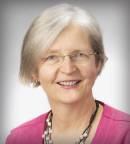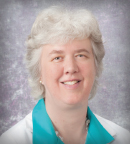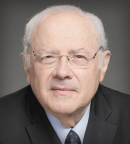Steffi Oesterreich, PhD, and Adrian V. Lee, PhD, breast cancer researchers at UMPC Hillman Cancer Center and Magee-Womens Research Institute, along with Wendie Berg, MD, PhD, Professor of Radiology at UMPC Magee-Womens Hospital, all of the University of Pittsburgh School of Medicine, have received funding from the Breast Cancer Research Foundation (BCRF). Also receiving funding is Norman Wolmark, MD, FACS, Chairman of the National Surgical Adjuvant Breast and Bowel Project (NSABP), Director of the National Cancer Institute Cooperative Group Clinical Trials at UPMC Hillman, and Professor of Surgery at Pitt.
BCRF, the largest private funder of breast cancer research worldwide, announced a commitment of $52.7 million to fund breast cancer research in 2022 to 2023. This funding supports 255 scientists at leading academic and medical institutions across 14 countries.

Steffi Oesterreich, PhD

Adrian V. Lee, PhD

Wendie Berg, MD, PhD

Norman Wolmark, MD, FACS
Lee/Oesterreich Laboratory
Drs. Lee and Oesterreich lead a team that studies the molecular basis of breast cancer development and resistance to therapy. Each of these BCRF-funded scientists is investigating unique aspects of cancer, including the role of growth factors in the progression of invasive lobular cancer, the second-most common but less-studied breast cancer. Their teams are exploring molecular subtypes and variants among invasive lobular cancer tumors to develop more precise treatment of lobular disease. Drs. Lee and Oesterreich have received more than $200,000 annually, for a total of $5 million in funding from BCRF.
Improving Cancer Screening
Dr. Berg, who serves as voluntary Chief Scientific Advisor for DenseBreast-info.org, has been a BCRF-funded investigator since 2016 and has received more than $1.3 million in total funding from BCRF. She is working to improve breast cancer detection in women who have a history of breast cancer or dense breast tissue.
Dr. Berg has studied artificial intelligence to improve breast ultrasound interpretation and works with the Dr. Susan Love Research Foundation on implementing this approach to triage women with breast lumps in low- and middle-income countries. Her current focus is on comparing contrast-enhanced mammography with three-dimensional mammography to improve breast cancer screening.
Enhancing HER2 Therapy
Dr. Wolmark, a BCRF-funded investigator since 2012, and his team are assessing the utility of biomarker panels that identify HER2 variants in patient breast cancer samples, along with other proteins that may interfere with the effectiveness of HER2-targeting therapies. In the coming year, they will explore how these variants drive therapeutic resistance as well as and how tumors might reduce their production of HER2 as another means of therapeutic escape. This funding, according to Dr. Wolmark, is instrumental in helping to better understand how HER2 drives breast cancer progression and in developing new therapeutics to target this oncoprotein.

